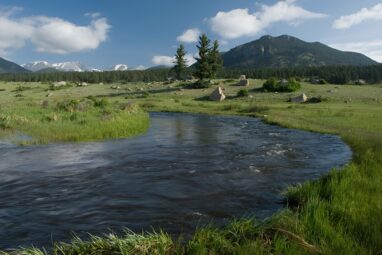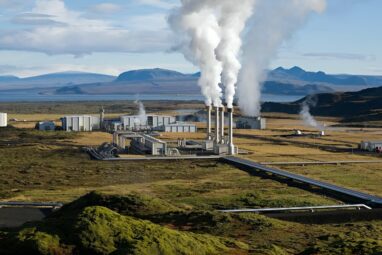A “rapid and far-reaching change” is necessary to prevent catastrophic climate change, according to the Intergovernmental Panel on Climate Change...
University researchers have shown that a transition to green wastewater-treatment approaches in the U.S. that leverages the potential of carbon-financing...
The boreal forest, covering much of Canada and Alaska, and the treeless shrublands to the north of the forest region,...
Per-and poly-fluoroalkyl substances—commonly known as PFAS—are a group of over 14,000 human-made chemicals that have been popular since the 1950s...
Cloud “engineering” could be more effective for climate cooling than previously thought, because of the increased cloud cover produced, new...
Using machine learning, researchers at Penn State have tied low-magnitude microearthquakes to the permeability of subsurface rocks beneath the Earth,...
New research led by oceanographers from the School of Ocean Sciences at Bangor University has shown for the first time...
April showers are increasingly becoming deluges due to climate change, and May flowers will never be the same. And it’s...
Concurrent occurrences of heat waves and extreme short-term sea level rises at the same coastal locations significantly increased between 1998...
In the early morning of 22 May 2021, a magnitude 7.4 quake rattled China’s remote Maduo County on the Tibetan...
Soil carbon usually refers only to the organic matter component of soils, known as soil organic carbon (SOC). However, soil...
Salt marsh restoration can mitigate flood risk and bolster community resilience to climate change in our local waterways, according to...













